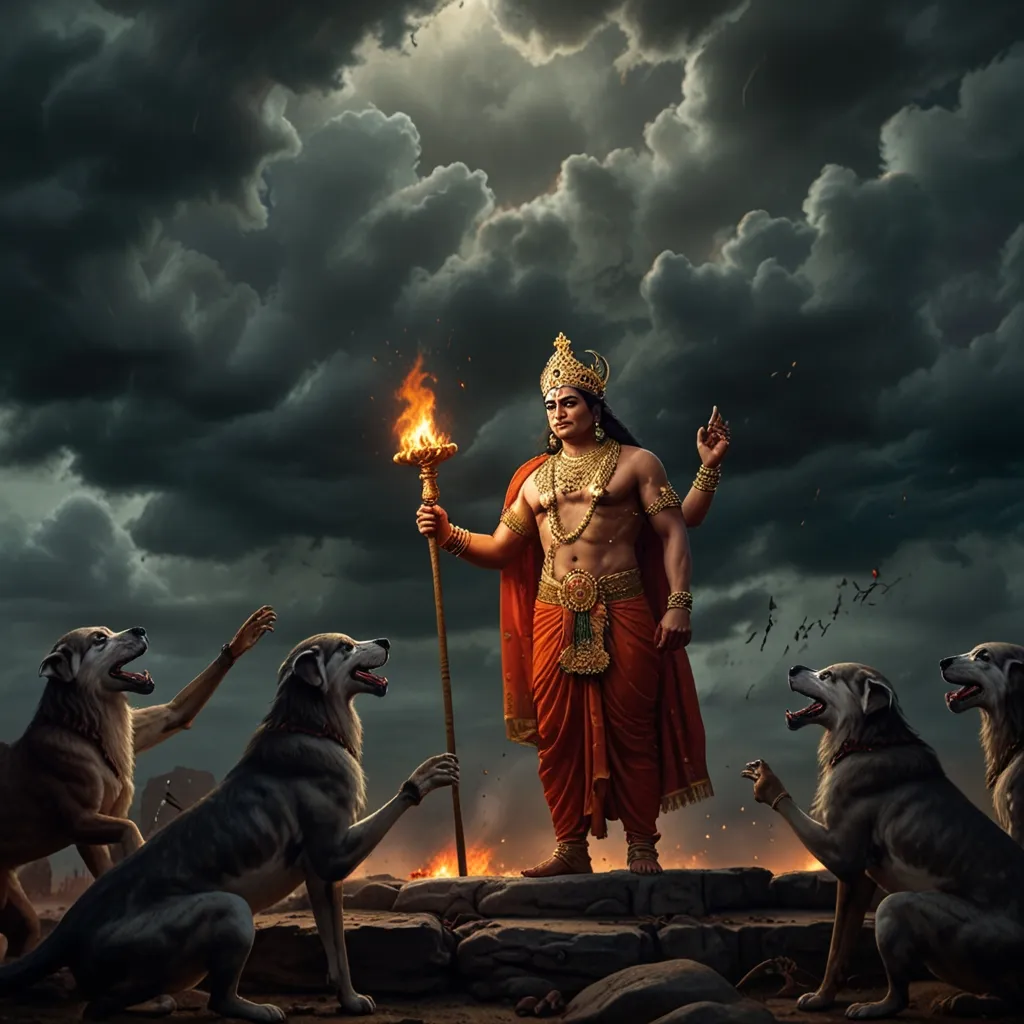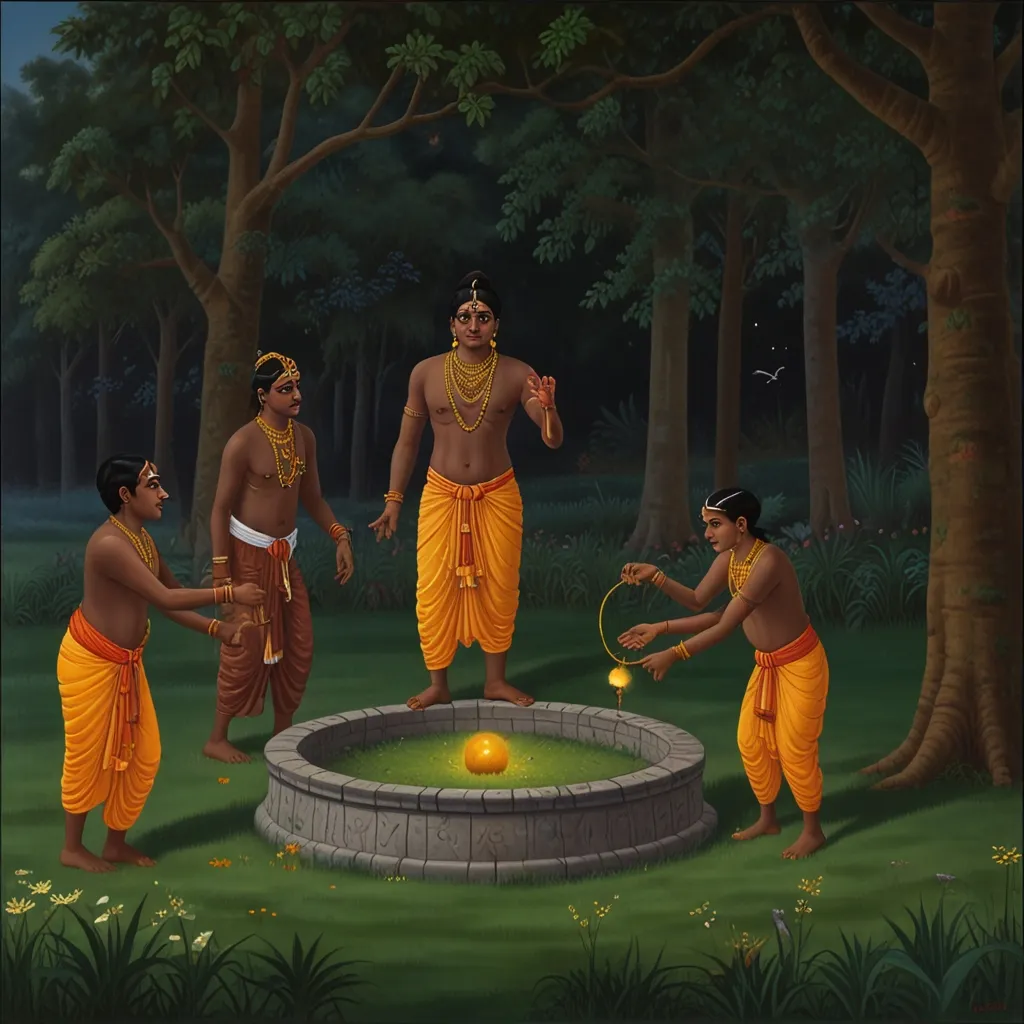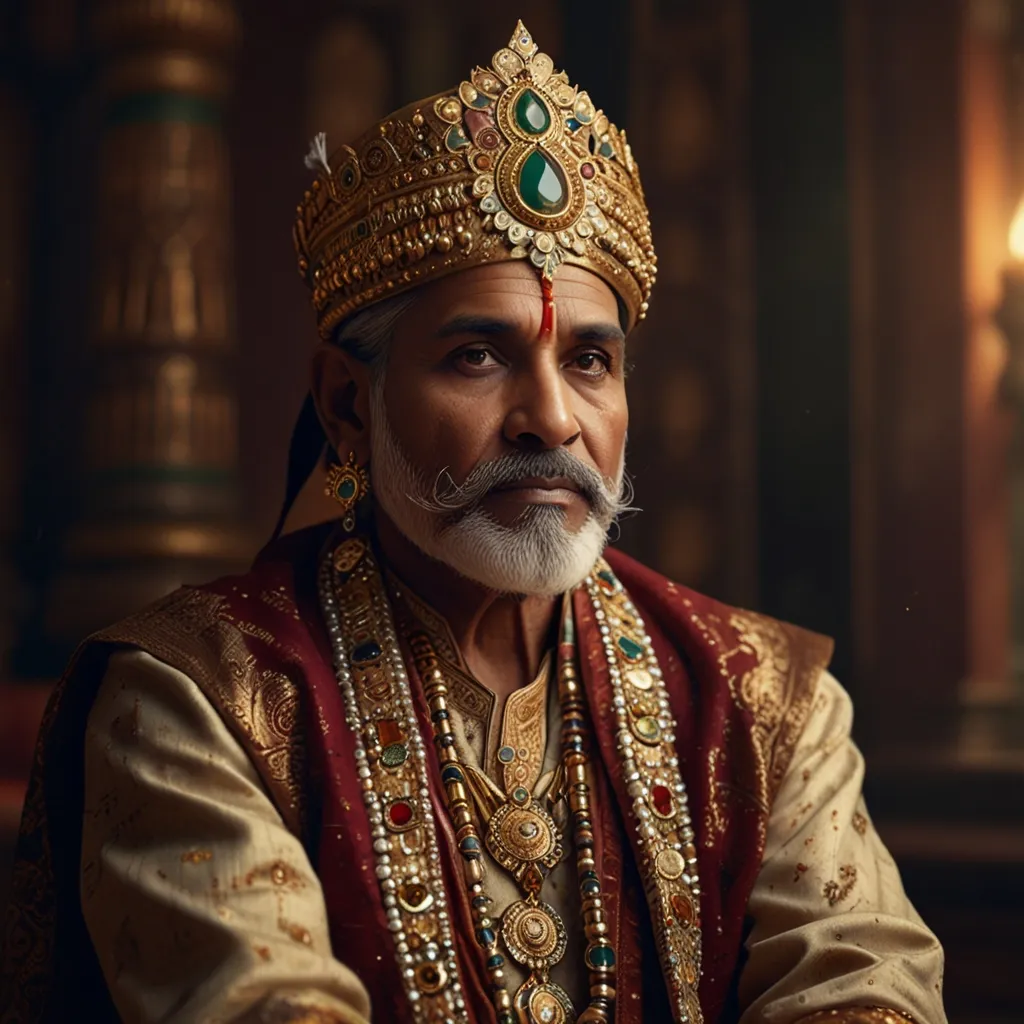Long ago in the serene times of Hindu mythology, there was this legendary king named Rantideva. His name shines through the pages of ancient tales for his mind-blowing generosity and rock-solid devotion to the gods. Imagine living in a world where helping others was counted as an act of worship. Rantideva’s story goes beyond just that—it’s a heartrending lesson in selflessness and the treasures that come from caring for others.
Rantideva was not your everyday king. He had this deep-rooted belief that serving humanity was akin to serving God. With an unwavering devotion to Lord Vishnu, he saw the divine spark in everyone he met. His kingdom thrived under his benevolent rule, with people cherishing him for his infinite kindness and compassion. His generosity knew no limits. Whether rich or poor, everyone received his wealth with open hands.
But then, like a plot twist in a gripping novel, the winds of fate changed. The kingdom faced a terrible crisis with unseasonal rains and fierce winds wrecking the crops, leading to an awful famine. The kingdom’s people struggled, and King Rantideva, determined to help, gave away every last ounce of his wealth. What makes this even more gut-wrenching is that, despite his own family’s dire situation, he still shared the little food they had with anyone who showed up at their door.
The severity of the famine worsened, and Rantideva’s family was left with absolutely nothing. They starved for days, yet the king’s faith never faltered. At his lowest, he meditated and prayed to Lord Vishnu, seeking the strength to endure. One fateful day, a stranger appeared offering food—but just as they were about to eat, a poor Brahmin turned up, hungry and desperate. Rantideva didn’t think twice; he shared their meal with the Brahmin, who left happily.
Just as they were about to eat again, a beggar knocked. Once more, Rantideva gave part of their food, leaving them with even less. Then came a man with his dogs, and guess what? The king shared their remaining food with them as well. All that was left for Rantideva was a glass of water.
When he was about to drink the water, another man named Chandala appeared, parched and desperate. Without a second thought, Rantideva gave Chandala the water, praying to Lord Vishnu to give him the strength to feel others’ pain instead of seeking wealth or power.
As Chandala drank the water, a miracle happened. His eyes sparkled with divine energy, and he revealed himself to be none other than Lord Vishnu. Rantideva was overwhelmed with joy and felt his soul fulfilled. Lord Vishnu praised him for his unwavering selflessness and promised to end his sufferings, offering him riches beyond imagination. But Rantideva, in his humility, only wished to remain in service to Lord Vishnu, desiring no worldly pleasures.
Blessed by Lord Vishnu, Rantideva attained moksha, joining the ranks of the great yogis lost in meditation. It’s a powerful reminder: true joy and fulfillment spring from selflessness and service to others. His tale isn’t just about giving away his wealth; it’s about grasping the essence of service. For Rantideva, every act of kindness was a devotion to the divine. Under his rule, the kingdom prospered, and his people thrived happily.
Rantideva’s story is an ageless lesson on the beauty of giving and helping. It tells us that good fortune befalls those who sacrifice for others. Despite facing severe hardships, Rantideva’s commitment to helping others never wavered. It was the gods themselves who tested him, placing him in the toughest conditions to see if he would remain selfless or buckle under pressure.
Even when his family suffered alongside him, Rantideva stood unwavering in his beliefs. His wife and children often went hungry, yet he never turned away someone in need. His selfless nature wasn’t just a habit—it was a deeply held belief that service to humanity equated to service to God.
There was this one poignant instance when a villager gave Rantideva’s family some food—rice, ghee, and vegetables. As they were about to eat, a holy man showed up at their door, seeking food. Rantideva, true to form, shared their meal. The holy man ate, blessed the family, and left. Then, another knock—it was a hungry farmer. Rantideva again gave away part of their meal, sending the farmer away satisfied.
As they were trying to eat what little was left, in came a traveler with dogs, pleading for food. Rantideva gave him the last of their porridge. The traveler and his dogs devoured the food, leaving Rantideva and his family with nothing but water.
In desperate hunger, as they were about to drink the water, a farmer lying on the road cried out for help, asking for water. Rantideva gave him the last drop, consoling his family by saying the farmer needed it more.
In a divine turn of events, the farmer transformed, revealing himself as Lord Brahma, who was touched by Rantideva’s selflessness. Brahma offered him a boon, and Rantideva, in all his humility, asked for the power to help his people endlessly. Lord Brahma agreed, restoring Rantideva’s wealth with a promise that it would never run out as long as he continued to help others.
Rantideva’s journey is a vivid testament to the deep-rooted power of sacrifice and the incredible rewards of selflessly helping others. His path wasn’t easy, but his steadfast devotion led him to attain moksha. It’s a story that nudges us to embrace the art of giving and to understand that real happiness lies in serving others.
In the end, the essence of Rantideva’s tale is simple yet profound: in giving, we receive the most. It’s a timeless tale that resonates with anyone who understands the heartwarming joy of selflessness. So, next time when faced with the opportunity to help, think of Rantideva and remember that every act of kindness counts, often in ways that are beyond our imagination.






